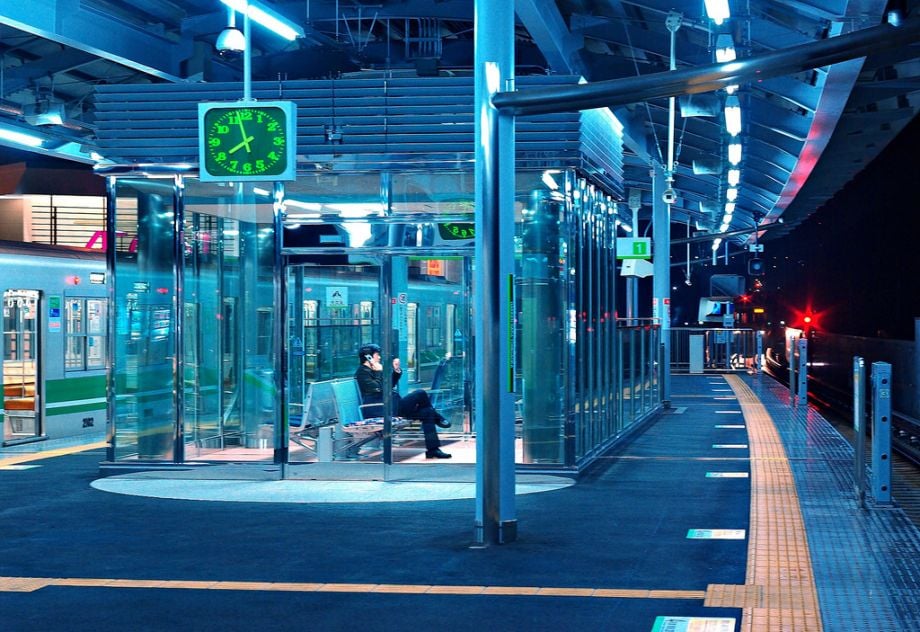Cognitive
dissonance is the feeling of discomfort caused by performing an action that is
discrepant from one’s customary, typically positive self-conception. Like many
other topics we have learned in Social Psychology, cognitive dissonance varies
across cultures. Japan has a collectivist culture, meaning that the needs of
the group matter more than the individual. As a result, Japanese individuals
are more likely to experience cognitive dissonance when their behavior shames
or disappoints others instead of themselves.
 Growing up in a
Japanese-American household, it has been extremely interesting to learn about
how cultural differences have an affect on many aspects of Social Psychology.
We’ve seen that Western societies tend to have Individualistic cultures whereas
East Asian societies tend to have Collectivist cultures. We have learned that
this difference in cultures has led to analytic vs. holistic style thinking as
well as a difference in the attribution of internal and external attributes. After
learning about how these cultural differences have an influence on behavior,
I’ve started to make connections about observations I have made about Japanese
behavior during previous visits to see family in Japan.
Growing up in a
Japanese-American household, it has been extremely interesting to learn about
how cultural differences have an affect on many aspects of Social Psychology.
We’ve seen that Western societies tend to have Individualistic cultures whereas
East Asian societies tend to have Collectivist cultures. We have learned that
this difference in cultures has led to analytic vs. holistic style thinking as
well as a difference in the attribution of internal and external attributes. After
learning about how these cultural differences have an influence on behavior,
I’ve started to make connections about observations I have made about Japanese
behavior during previous visits to see family in Japan.
Recently, Japan
has experienced incredibly high rates of suicide. When I travel to Japan, it
feels like there is a train delay due to an “accident” every day of the week.
Unfortunately, these “accidents” are due to individuals jumping in front of
trains to their death. Many times, footage will show businessmen in full suit
attire committing this act of suicide on their way home from work. The news
will broadcast later that night that this businessman had recently lost his job
and was too ashamed to face his family. To avoid shame by his community, he
felt his only option was to end his life. This kind of suicide is so common in
Japan that trains have been remodeled to make the post-suicide clean up process
easier and new calming blue lights have been installed in many train stations
in effort to persuade suicidal individuals not to jump.
 |
| Blue lights added to train stations in attempt to decrease suicide attempts. |
Many attribute
this suicidal tendency in Japan to a term called senkentei, which is a person’s reputation in the community and the
pressure he or she feels to impress others. The effects of senkentei have caused many recent college graduates in Japan to
fall victim to hikikomori, which is
the tendency for young people to withdraw from society and remain indoors for fear
of social failure. Seemingly small set backs such as low grades or rejection
from college may trigger hikikomori and
cause these individuals to withdraw from society by taking shelter in their
homes. Unfortunately, parents of
children that withdraw and fear the outside world are reluctant to get help
because the parents also fear judgment from society for admitting that they
have a child with hikikomori.
A study of
Japanese and American college students in 2004 looked at the difference in
cognitive dissonance in these two cultures. They asked both Japanese and
American students to rank their top 10 favorite CDs as well as what they
thought were the top 10 favorite CDs of the average college student in their
country. They hypothesized that Japanese students would show a dissonance
effect by changing their ranking if they are primed to worry about how others
would judge their choices. Supporting this hypothesis, Japanese students were
in fact more likely than American students to adjust their ranking of favorite
CDs when self-relevant social others were salient (Kitayama, Snibbe, Markus & Suzuki, 2004). On the other hand, priming
the American students to worry about how others would judge their choices did
not cause them to change their original rankings of the CDs. Instead, American
participants’ dissonance reflected a worry about their own competence and
internal attributes. American students were more concerned with whether or not
their choices were foolish of themselves, whereas Japanese students were
concerned with whether or not their choices made themselves look like a fool to
others.
This collectivist
concentration on the way an individual appears to others can cause increased
levels of anxiety about bringing shame to their family or community. I’ve
personally witnessed the some of the consequences of this heightened level of
anxiety during my visits to Japan. Reading about the effects of culture on
Cognitive Dissonance has made me think about whether some aspects of cultural values
can be reversed to prevent some of the adverse consequences of the fear of
shame. Unfortunately, it seems as if some of the attempts at decreasing suicide
are more focused preventing train delaysrather
than focusing on decreasing the societal pressures that lead individuals to
feel intense Cognitive Dissonance and seek suicidal actions.
[Submitted by: Tiffany Holland]
Reference
Kitayama, S., Snibbe, A. C., Markus, H. R., & Suzuki, T. (2004). Is There Any 'Free' Choice?: Self and Dissonance in Two Cultures. Psychological Science, 15(8), 527-533. doi:10.1111/j.0956-7976.2004.00714.x
Fantastic post! The post was written very well, it was engaging, and also laid out a social phenomenon that is plaguing Japan. I never knew about this increase in suicide rates and I applaud you for explaining it so clearly and relevantly relating this information to class material. Also, I enjoy how you challenged the way the country is dealing with this crisis in your conclusion. Awesome job!
ReplyDelete